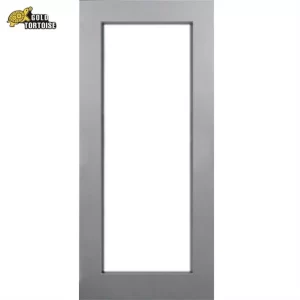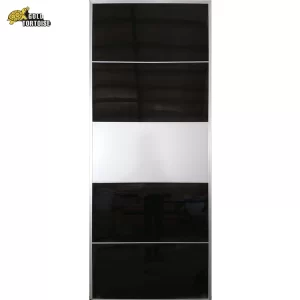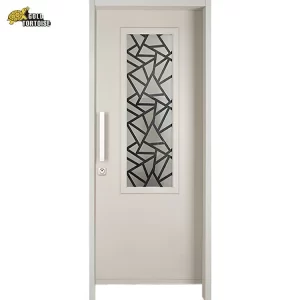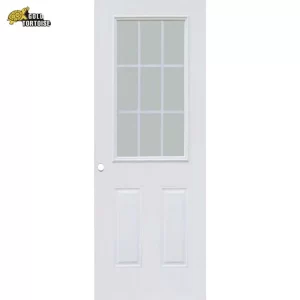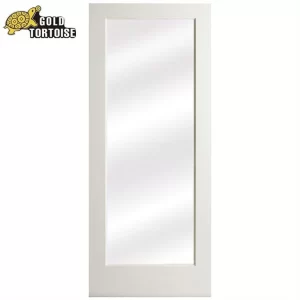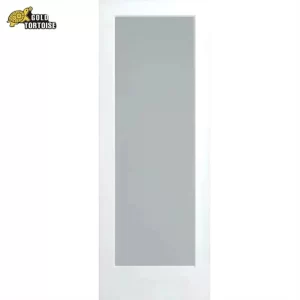The choice between aluminum and steel doors depends on various factors, including your specific needs, preferences, and the intended application. Both aluminum and steel doors have their advantages and considerations:
Aluminum Doors:
Pros:
1. Lightweight: Aluminum is a lightweight material, making aluminum doors easy to handle during installation.
2. Resistance to Rust: Aluminum is resistant to rust and corrosion, which is particularly beneficial in coastal or humid environments.
3. Low Maintenance: Aluminum doors require minimal maintenance and do not need to be painted or coated for rust prevention.
Cons:
1. Durability: While aluminum is strong, it is generally not as sturdy as steel. It may be more susceptible to dents and damage.
2. Thermal Conductivity: Aluminum is a good conductor of heat, so aluminum doors may not provide as much insulation as steel doors.
Steel Doors:
Pros:
1. Strength and Durability: Steel is a strong and durable material, providing excellent security and resistance to impact.
2. Insulation: Steel doors can provide better insulation compared to aluminum, especially if they have a foam core or other insulating materials.
3. Customization: Steel doors can be customized with various designs, finishes, and features.
Cons:
1. Weight: Steel doors are heavier than aluminum doors, which can make installation more challenging.
2. Susceptibility to Rust: While modern steel doors are often treated to resist rust, they can still be susceptible to corrosion over time, especially in harsh weather conditions if not properly maintained.
In summary, if you prioritize lightweight construction, resistance to rust, and low maintenance, aluminum doors may be suitable. However, if you prioritize strength, durability, insulation, and customization options, steel doors may be a better choice. The specific requirements of your project and your location can also influence the decision between aluminum and steel doors.

